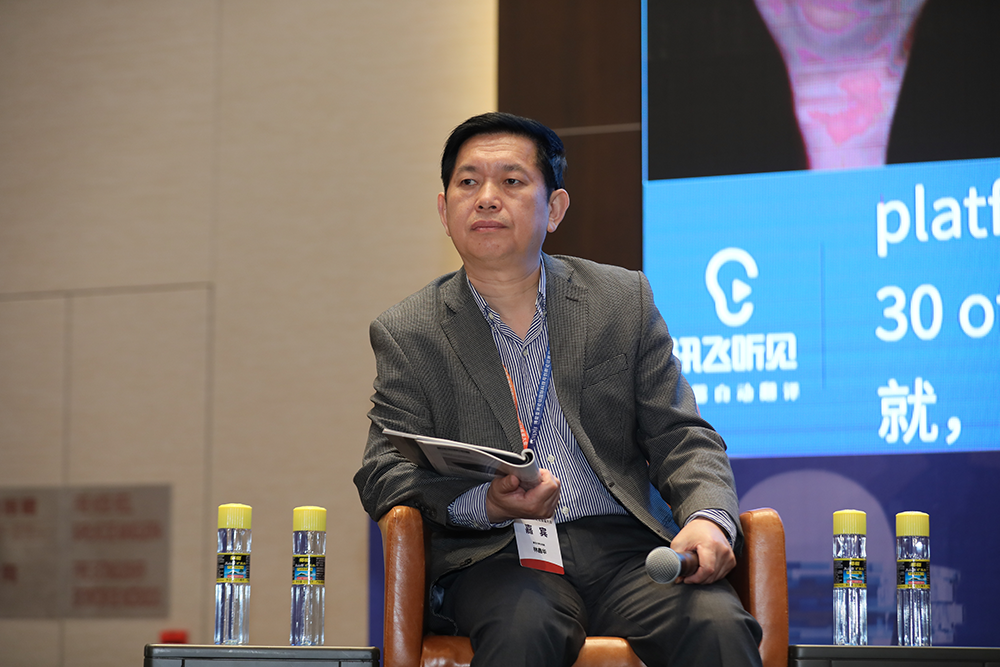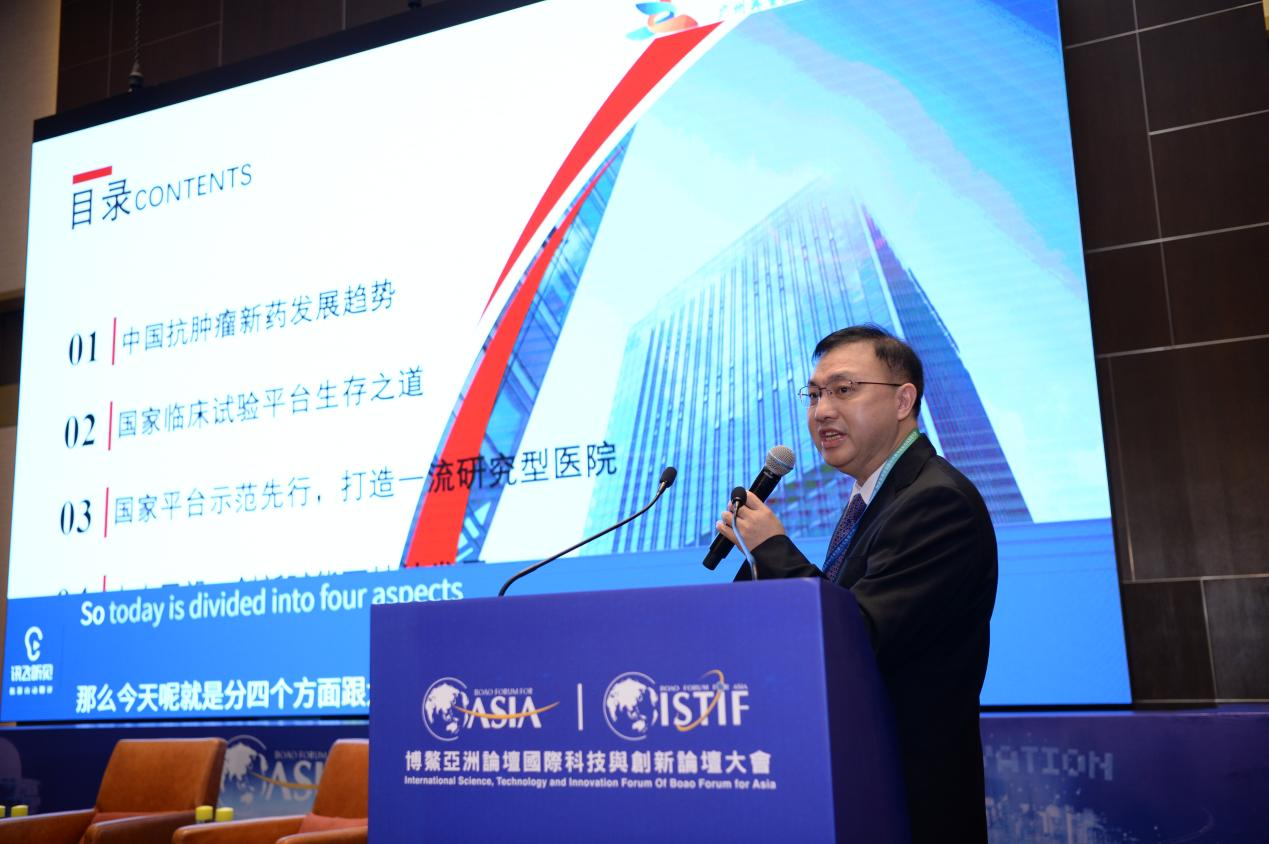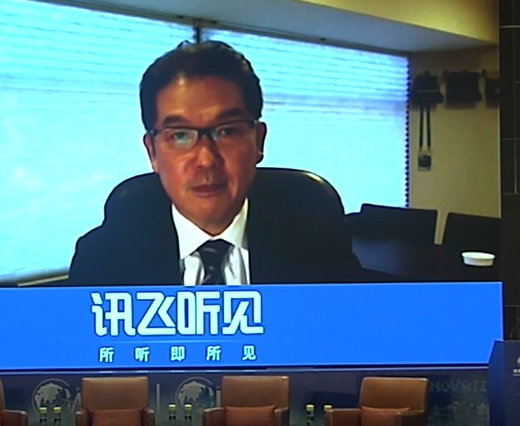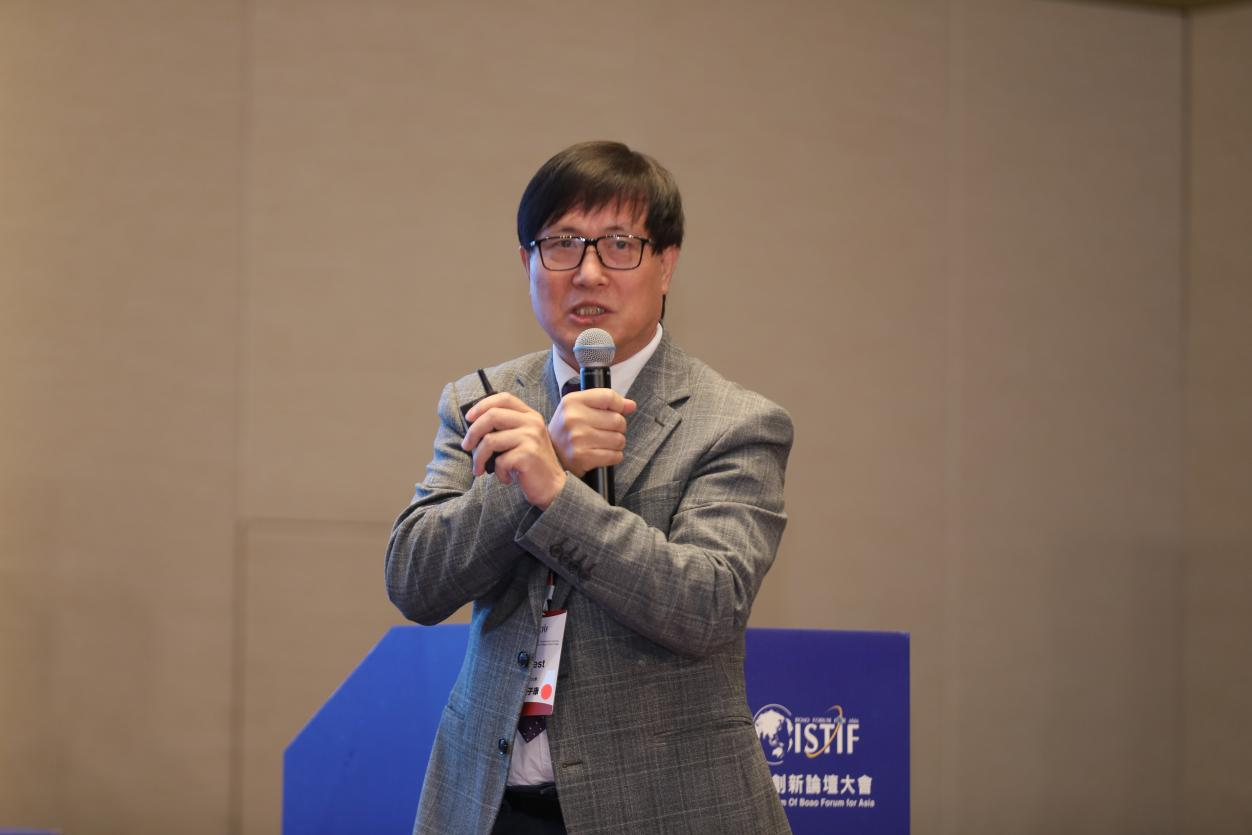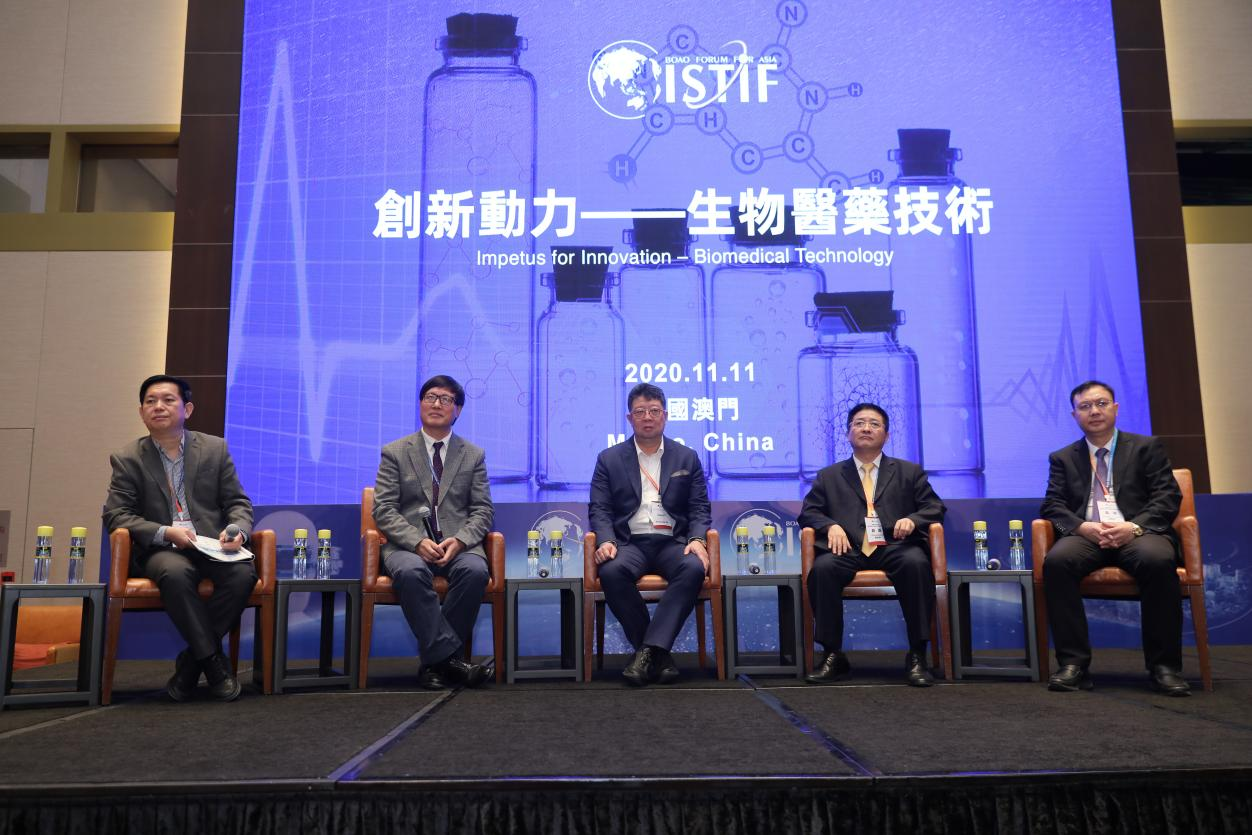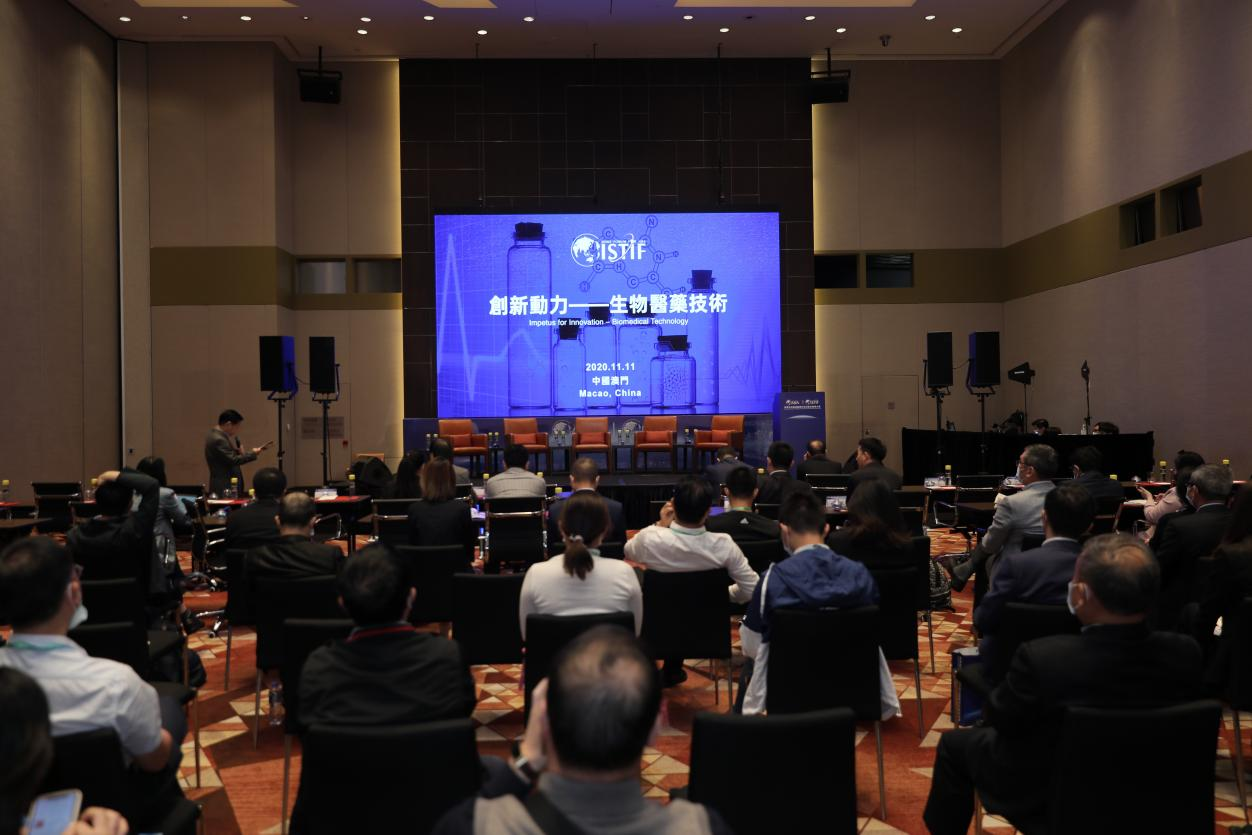As an important part in the new economy, biomedicine plays an indispensable role in the strategy of innovative development. At present, globally, biomedical technology has entered a period of rapid development from large-scale industrialization and has gradually become a leading industry in the world economy, with global sales of biopharmaceuticals growing at a significant rate.
The session “Impetus for Innovation - Biomedical Technology” was moderated by Lin Xinhua,
Professor, Dean of School of Life Sciences, Fudan University and Director of State Key Laboratory of Genetics Engineering. Zhou Xinke, Dean of the Fifth Affiliated Hospital of Guangzhou Medical University; Zhao Yongxiang, Director of the National International Joint Research Centre for Bio-targeted Diagnosis and Treatment; Zhong Weide, Director of the Key Laboratory of Clinical Molecular Medicine and Molecular Diagnosis of Guangdong Province; Takashi kamigaki, Professor of Dept. of Next Generation Cell & Immune Therapy, Juntendo University School of Medicine; Tang Zikang, Chair Professor and Director, Institute of Applied Physics & Materials Engineering, University of Macau, held in-depth discussions and shared insightful information on the current state of the bio-pharmaceutical industry and the prospect of its future application on the topics of the bio-pharmaceutical industry's utilization of resources such as technology, capital, and human resources, product R&D and market opportunities.
During the forum sharing, the participated panelists introduced to the audience the treatment solutions for many major malignant diseases under the new biomedical technology, such as the new type of soluble tumour cells that can kill cancer in a second proposed by Zhao Yongxiang and the solution of using quantum biotechnology to awaken the tumour immune function in the body's immune system in order to track down and kill the tumour brought by Prof. Tang Zikang. Biomedicine is not a simple cellular life discipline. In the era of new biomedical industry, new materials, new industries and new biology will bring brand-new technologies to the field of biomedicine. Zhong Weide pointed out that the advancement of material science is an important step forward in biomedical applications, which will help medical personnel effectively reduce the therapeutic damage of patients. In his presentation on photothermal and photodynamic effect on nanomaterials for prostate diagnosis and treatment, he emphasized the properties of nanomaterials in terms of drug-carrying, targeting, plasticity and imaging effects. In addition, Takashi kamigaki brought a new treatment modality, preformed therapy. Preformed therapy will help medical personnel to clearly diagnose the target of intervention for a possible disease, and then select the appropriate immune cell therapy through various tests, which will indicate in the future patients can receive personalized healthcare - also known as tailor-made medicine.
Before biomedical technology matures and is widely used to improve the quality of human life, mankind still needs to strengthen cooperation in biomedical research. According to Zhou Xinke, China's biopharmaceutical research started late and is still lagging behind in the aspects of quality, competitiveness, data acceptance, drug listing and international certification, etc. However, in recent years, China has gradually begun to participate in the formulation of international rules and regulations, promoting the entry of domestically produced drugs into clinical trials, and the 9 major international biopharmaceutical companies have listed China as a key market in the future that will also bring new opportunities to China. He pointed out that China should strengthen the international exchange of science and technology innovation for mutual benefit and sharing, accelerate the research and development of drugs for highly prevalent tumours, and take Guangzhou as an example to propose to increase the investment to build first-class laboratories and medical bases, and establish international research hospitals featuring gene therapy and cell therapy.
